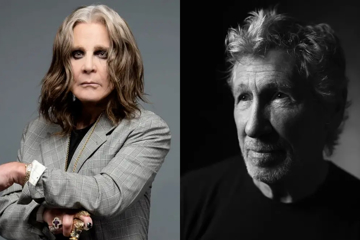When Traditional Therapy Isn't Enough, Take Some MDMA Maybe?
"The participants describe it as being as effective as 20 years of therapy."
A sense for radical discontinuity is behind David Woods' new theatrical work, Give Me Your Love. "We always like to surprise ourselves with what our show will be, and often try and get as far away from the previous work as possible," he says of his and artistic partner Jon Haynes' process, "just to keep ourselves interested and our audiences guessing, as much as anything." The previous work in question is their company Ridiculusmus's much acclaimed The Eradication Of Schizophrenia In Western Lapland. While both shows look at a subject close to the company's heart — mental illness and its social effects — the latest takes a brilliantly unconventional perspective.
Give Me Your Love is about the treatment of post-traumatic stress disorder — but not your conventional 'talk it out' method. "We sort of reference the history of post-traumatic stress; the shell shock of the Vietnam War et cetera. The sort of methods used then are addressed and dismissed quite quickly. 'I've done prolonged exposure,' — one of the methods that the American army used — 'and it doesn't work,' says my character, 'I don't want to do that.'"
"We sort of reference the history of post-traumatic stress; the shell shock of the Vietnam War et cetera."
What Woods found in his research is that the party drug MDMA ('molly' down at the club) works emphatically well for the treatment of "chronic, resistant post-traumatic stress". "It was very hard to find someone to commit," he says of his search for willing psychiatrists to aid in that research, "because we were clearly strongly advocating for the talking treatment in Lapland. But, one very progressive and enlightened psychiatrist from South West England called Dr Ben Sessa offered to share his experience with us."
Sessa's clinical trials proved use of the drug in its pure form to be dazzlingly effective. "The participants describe it as being as effective as 20 years of therapy," Woods says. "It facilitates very quick feelings of trust and comfort."
MDMA decreases activity in the amygdala, which is the part of the brain that triggers our 'fight-or-flight' response to stress, including stressful memories. The therapist's other techniques are then met with far less resistance.
Don't miss a beat with our FREE daily newsletter
So undeniable is the success of this approach that Woods had to search for the show's theatrical hook elsewhere. "We came across, in a documentary, an American war vet who was too far away to attend the trials… so he decided to enact his own trials by sourcing the best MDMA he could get through street drug selling… and booked himself in with a therapist." Happy with the results, the veteran then tries to rope in his friends.
This became the play's premise. Drama ensues as Woods' character goes through "a corrupted, partial version of what happens at these trials".
Ridiculusmus's creation of the show began with an improvisation at a workshop with the Welsh theatre company, Hijinx. There happened to be a woman involved who, prone to bouts of narcolepsy, recorded all such experiences. Woods and Haynes borrowed her tape and Give Me Your Love's dialogue was meticulously crafted from there.
"We will probably get to a stage where we become so familiar with the script we might actually riff off from that," Woods says. "It keeps it very much alive in front of an audience." As with unconventional cures for mental trauma, it's often what we produce ourselves in the right conditions that yields both the joy of live performance and deep healing.







